Nimrod Talmon
AI-Generated Compromises for Coalition Formation
Jun 07, 2025Abstract:The challenge of finding compromises between agent proposals is fundamental to AI subfields such as argumentation, mediation, and negotiation. Building on this tradition, Elkind et al. (2021) introduced a process for coalition formation that seeks majority-supported proposals preferable to the status quo, using a metric space where each agent has an ideal point. A crucial step in this process involves identifying compromise proposals around which agent coalitions can unite. How to effectively find such compromise proposals remains an open question. We address this gap by formalizing a model that incorporates agent bounded rationality and uncertainty, and by developing AI methods to generate compromise proposals. We focus on the domain of collaborative document writing, such as the democratic drafting of a community constitution. Our approach uses natural language processing techniques and large language models to induce a semantic metric space over text. Based on this space, we design algorithms to suggest compromise points likely to receive broad support. To evaluate our methods, we simulate coalition formation processes and show that AI can facilitate large-scale democratic text editing, a domain where traditional tools are limited.
Framework of Voting Prediction of Parliament Members
May 18, 2025Abstract:Keeping track of how lawmakers vote is essential for government transparency. While many parliamentary voting records are available online, they are often difficult to interpret, making it challenging to understand legislative behavior across parliaments and predict voting outcomes. Accurate prediction of votes has several potential benefits, from simplifying parliamentary work by filtering out bills with a low chance of passing to refining proposed legislation to increase its likelihood of approval. In this study, we leverage advanced machine learning and data analysis techniques to develop a comprehensive framework for predicting parliamentary voting outcomes across multiple legislatures. We introduce the Voting Prediction Framework (VPF) - a data-driven framework designed to forecast parliamentary voting outcomes at the individual legislator level and for entire bills. VPF consists of three key components: (1) Data Collection - gathering parliamentary voting records from multiple countries using APIs, web crawlers, and structured databases; (2) Parsing and Feature Integration - processing and enriching the data with meaningful features, such as legislator seniority, and content-based characteristics of a given bill; and (3) Prediction Models - using machine learning to forecast how each parliament member will vote and whether a bill is likely to pass. The framework will be open source, enabling anyone to use or modify the framework. To evaluate VPF, we analyzed over 5 million voting records from five countries - Canada, Israel, Tunisia, the United Kingdom and the USA. Our results show that VPF achieves up to 85% precision in predicting individual votes and up to 84% accuracy in predicting overall bill outcomes. These findings highlight VPF's potential as a valuable tool for political analysis, policy research, and enhancing public access to legislative decision-making.
Drawing a Map of Elections
Apr 08, 2025Abstract:Our main contribution is the introduction of the map of elections framework. A map of elections consists of three main elements: (1) a dataset of elections (i.e., collections of ordinal votes over given sets of candidates), (2) a way of measuring similarities between these elections, and (3) a representation of the elections in the 2D Euclidean space as points, so that the more similar two elections are, the closer are their points. In our maps, we mostly focus on datasets of synthetic elections, but we also show an example of a map over real-life ones. To measure similarities, we would have preferred to use, e.g., the isomorphic swap distance, but this is infeasible due to its high computational complexity. Hence, we propose polynomial-time computable positionwise distance and use it instead. Regarding the representations in 2D Euclidean space, we mostly use the Kamada-Kawai algorithm, but we also show two alternatives. We develop the necessary theoretical results to form our maps and argue experimentally that they are accurate and credible. Further, we show how coloring the elections in a map according to various criteria helps in analyzing results of a number of experiments. In particular, we show colorings according to the scores of winning candidates or committees, running times of ILP-based winner determination algorithms, and approximation ratios achieved by particular algorithms.
Efficient Social Choice via NLP and Sampling
Sep 04, 2023



Abstract:Attention-Aware Social Choice tackles the fundamental conflict faced by some agent communities between their desire to include all members in the decision making processes and the limited time and attention that are at the disposal of the community members. Here, we investigate a combination of two techniques for attention-aware social choice, namely Natural Language Processing (NLP) and Sampling. Essentially, we propose a system in which each governance proposal to change the status quo is first sent to a trained NLP model that estimates the probability that the proposal would pass if all community members directly vote on it; then, based on such an estimation, a population sample of a certain size is being selected and the proposal is decided upon by taking the sample majority. We develop several concrete algorithms following the scheme described above and evaluate them using various data, including such from several Decentralized Autonomous Organizations (DAOs).
Foundations for Grassroots Democratic Metaverse
Apr 10, 2022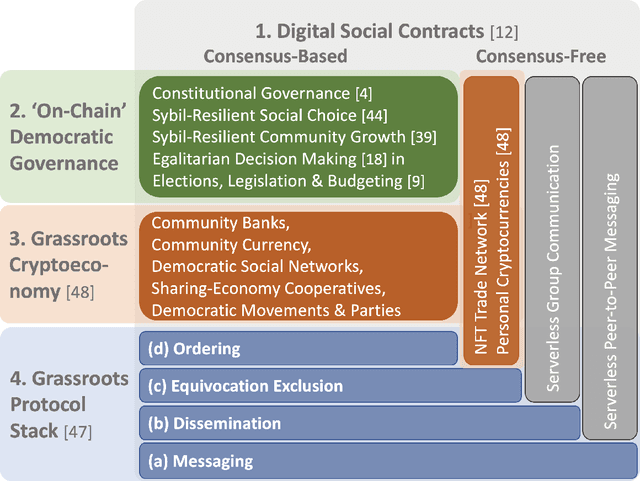
Abstract:While the physical lives of many of us are in democracies (one person, one vote - e.g., the EU and the US), our digital lives are mostly in autocracies (one person, all votes - e.g., Facebook). Cryptocurrencies promise liberation but stop short, at plutocracy (one coin, one vote). What would it take for us to live our digital lives in a digital democracy? This paper offers a vision, a theoretical framework, and an architecture for a grassroots network of autonomous, people-owned, people-operated, and people-governed digital communities, namely a grassroots democratic metaverse. It also charts a roadmap towards realizing it, and identifies unexplored territory for further research.
What Should We Optimize in Participatory Budgeting? An Experimental Study
Nov 14, 2021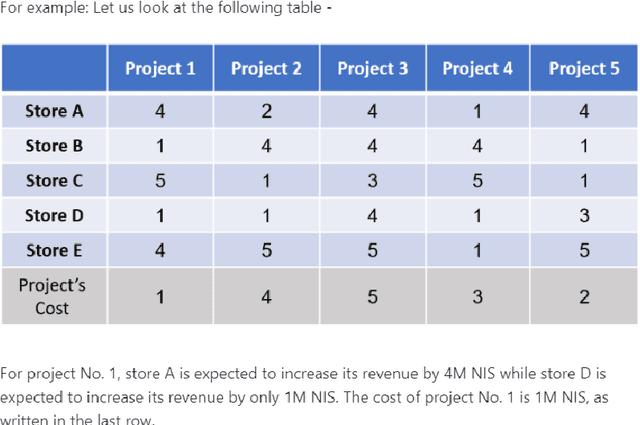
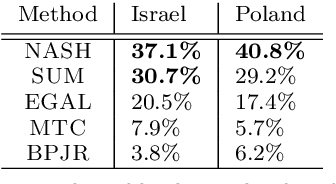
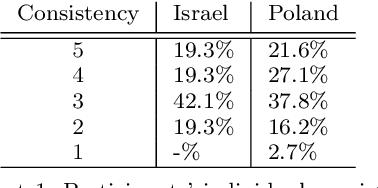
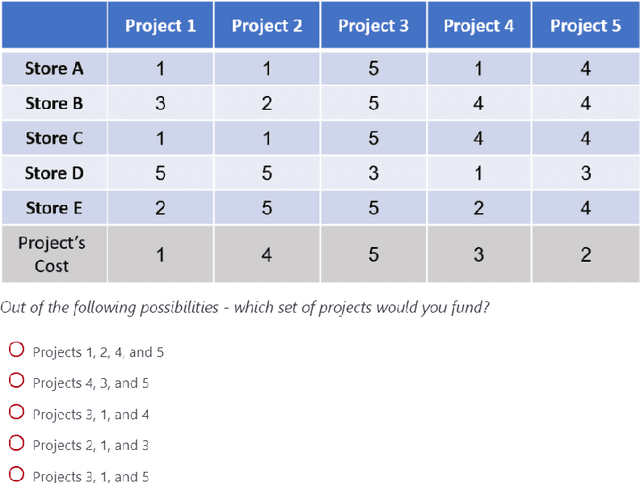
Abstract:Participatory Budgeting (PB) is a process in which voters decide how to allocate a common budget; most commonly it is done by ordinary people -- in particular, residents of some municipality -- to decide on a fraction of the municipal budget. From a social choice perspective, existing research on PB focuses almost exclusively on designing computationally-efficient aggregation methods that satisfy certain axiomatic properties deemed "desirable" by the research community. Our work complements this line of research through a user study (N = 215) involving several experiments aimed at identifying what potential voters (i.e., non-experts) deem fair or desirable in simple PB settings. Our results show that some modern PB aggregation techniques greatly differ from users' expectations, while other, more standard approaches, provide more aligned results. We also identify a few possible discrepancies between what non-experts consider \say{desirable} and how they perceive the notion of "fairness" in the PB context. Taken jointly, our results can be used to help the research community identify appropriate PB aggregation methods to use in practice.
Bribery as a Measure of Candidate Success: Complexity Results for Approval-Based Multiwinner Rules
Apr 19, 2021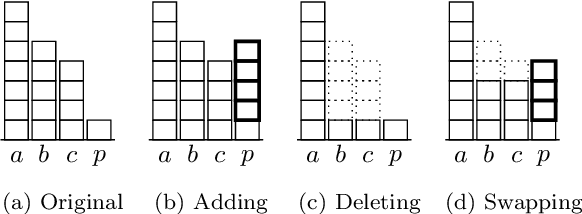
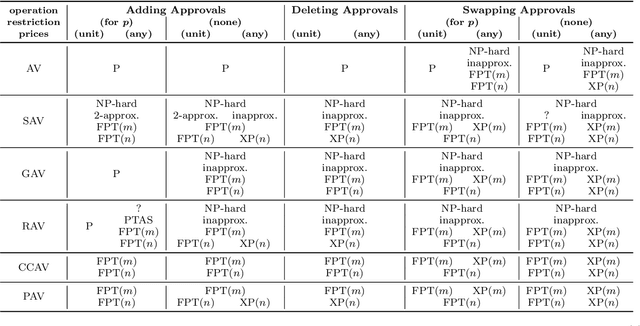
Abstract:We study the problem of bribery in multiwinner elections, for the case where the voters cast approval ballots (i.e., sets of candidates they approve) and the bribery actions are limited to: adding an approval to a vote, deleting an approval from a vote, or moving an approval within a vote from one candidate to the other. We consider a number of approval-based multiwinner rules (AV, SAV, GAV, RAV, approval-based Chamberlin--Courant, and PAV). We find the landscape of complexity results quite rich, going from polynomial-time algorithms through NP-hardness with constant-factor approximations, to outright inapproximability. Moreover, in general, our problems tend to be easier when we limit out bribery actions on increasing the number of approvals of the candidate that we want to be in a winning committee (i.e., adding approvals only for this preferred candidate, or moving approvals only to him or her). We also study parameterized complexity of our problems, with a focus on parameterizations by the numbers of voters or candidates.
Participatory Budgeting with Project Groups
Dec 09, 2020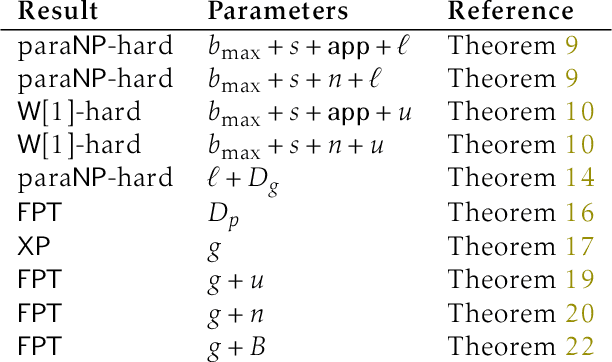


Abstract:We study a generalization of the standard approval-based model of participatory budgeting (PB), in which voters are providing approval ballots over a set of predefined projects and -- in addition to a global budget limit, there are several groupings of the projects, each group with its own budget limit. We study the computational complexity of identifying project bundles that maximize voter satisfaction while respecting all budget limits. We show that the problem is generally intractable and describe efficient exact algorithms for several special cases, including instances with only few groups and instances where the group structure is close to be hierarchical, as well as efficient approximation algorithms. Our results could allow, e.g., municipalities to hold richer PB processes that are thematically and geographically inclusive.
Complexity of Shift Bribery in Committee Elections
Sep 24, 2018
Abstract:Given an election, a preferred candidate p, and a budget, the SHIFT BRIBERY problem asks whether p can win the election after shifting p higher in some voters' preference orders. Of course, shifting comes at a price (depending on the voter and on the extent of the shift) and one must not exceed the given budget. We study the (parameterized) computational complexity of S HIFT BRIBERY for multiwinner voting rules where winning the election means to be part of some winning committee. We focus on the well-established SNTV, Bloc, k-Borda, and Chamberlin-Courant rules, as well as on approximate variants of the Chamberlin-Courant rule, since the original rule is NP-hard to compute. We show that SHIFT BRIBERY tends to be harder in the multiwinner setting than in the single-winner one by showing settings where SHIFT BRIBERY is easy in the single-winner cases, but is hard (and hard to approximate) in the multiwinner ones. Moreover, we show that the non-monotonicity of those rules which are based on approximation algorithms for the Chamberlin-Courant rule sometimes affects the complexity of SHIFT BRIBERY.
A Framework for Approval-based Budgeting Methods
Sep 12, 2018
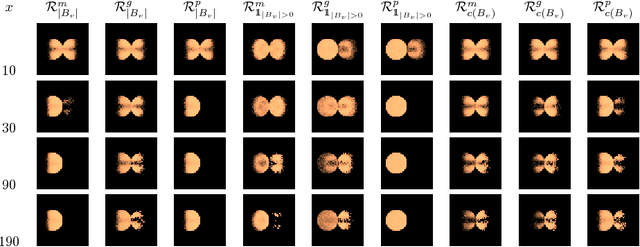
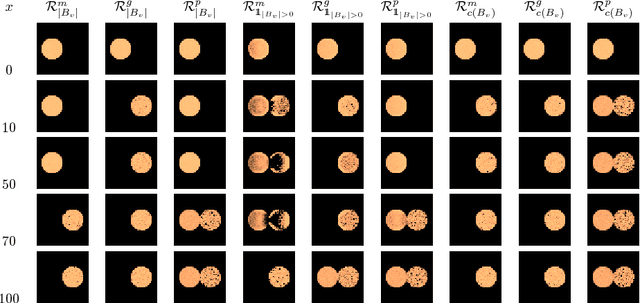
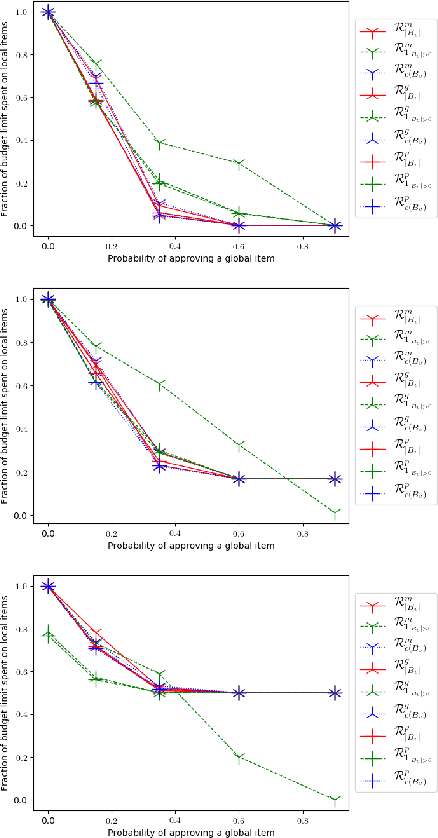
Abstract:We define and study a general framework for approval-based budgeting methods and compare certain methods within this framework by their axiomatic and computational properties. Furthermore, we visualize their behavior on certain Euclidean distributions and analyze them experimentally.
 Add to Chrome
Add to Chrome Add to Firefox
Add to Firefox Add to Edge
Add to Edge